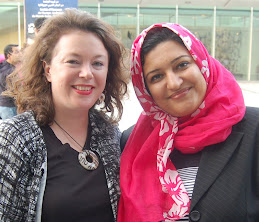
Kayleigh has two years left at the Marcia D. Smith School in Gaithersburg, Md., and is eligible for 25 hours of paid help a week through the Autism Waiver, a Maryland Medicaid program.
But when she turns 21, these services will no longer be available. “That’s the scary time for everyone,” Marlene said. “There are big waiting lists for services.” In 1993, the year Kayleigh was diagnosed, there were 260 students in the Maryland Public School System identified as autistic.
Now the system serves approximately 5,764 students with autism, ages 3-21. The Kuwait Center for Autism, which began in 1994 with just a handful of students, now serves 120. According to the World Health Organization, autism affects about 67 million people worldwide.
In the U.S., 1 percent of children ages 3-17 have been diagnosed with an autism spectrum disorder, and autism has been identified as the fastest-growing developmental disability. There are no official statistics in Kuwait, but an estimated 2,500 are afflicted. Autism programs have grown, along with awareness. But as the children of these pioneering families grow up and leave school, organizations and advocacy groups are looking toward the next challenge: “What do you do with the adults?” The McConnells want Kayleigh to be independent. They want her to be able to work and be happy and productive. But the future is a constant worry.
“I don’t know where she’s going to fit in,” Marlene said. “I don’t know what’s out there.” Abdullah's parents also describe the future as their biggest fear. They hope Abdullah will someday have a job; that employers will be able to make use of his many skills. All they want for him, they say, is what families everywhere want for their children. They want him to be happy.

No comments:
Post a Comment